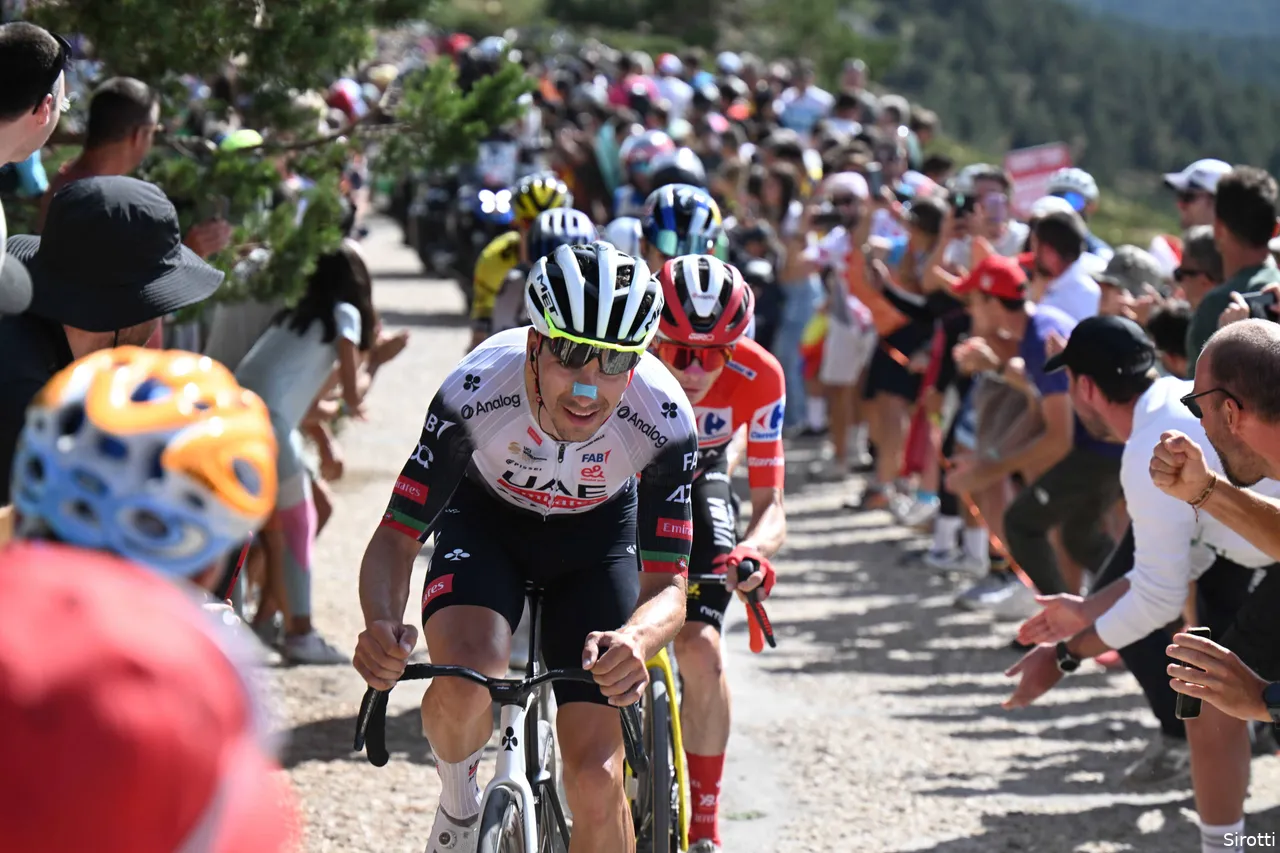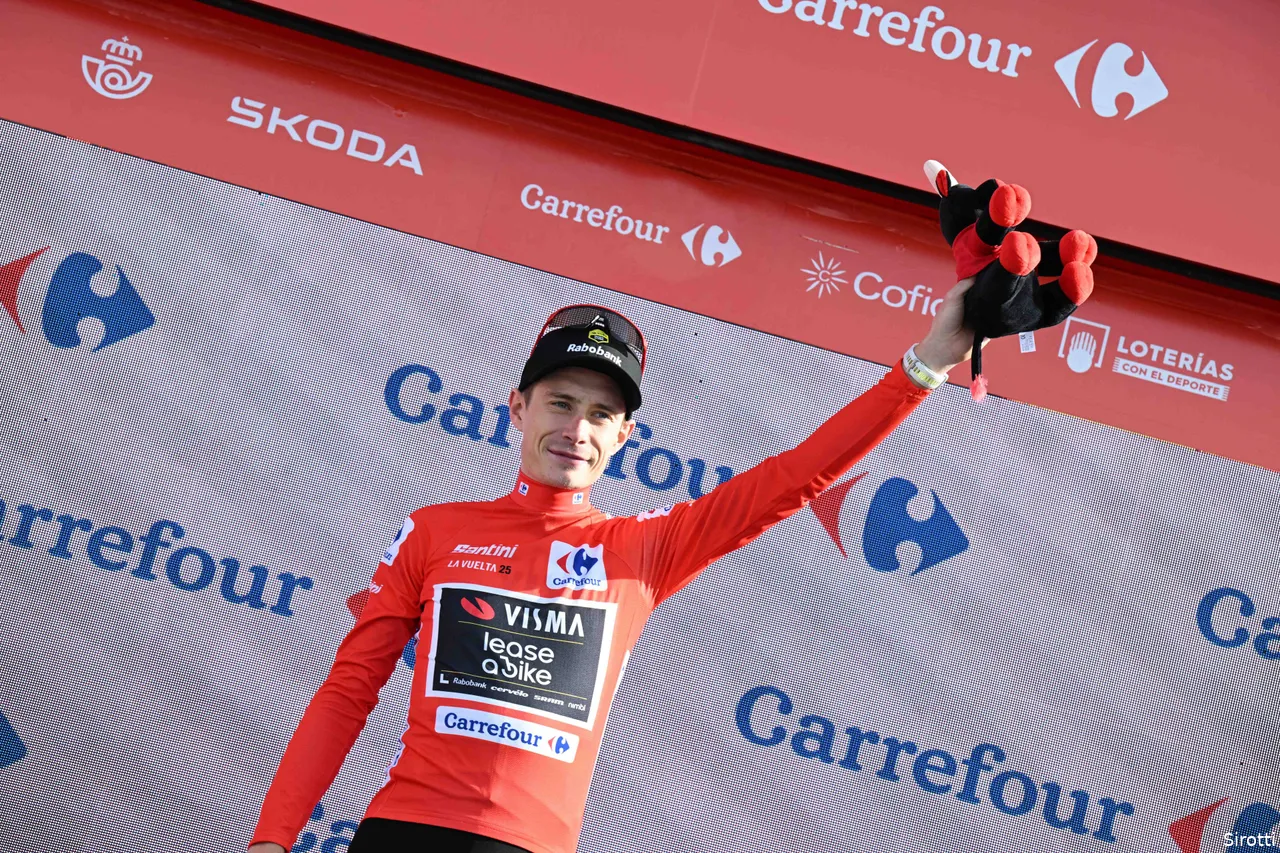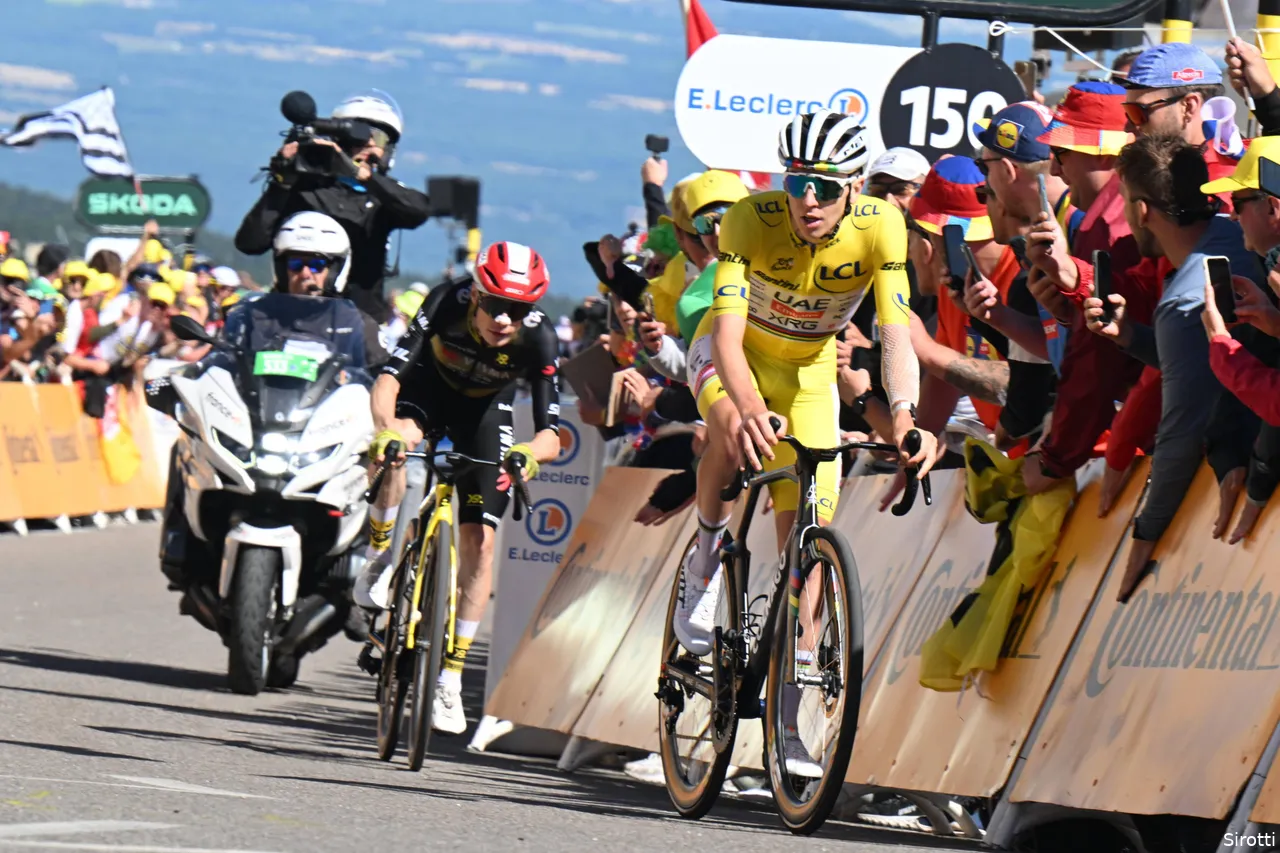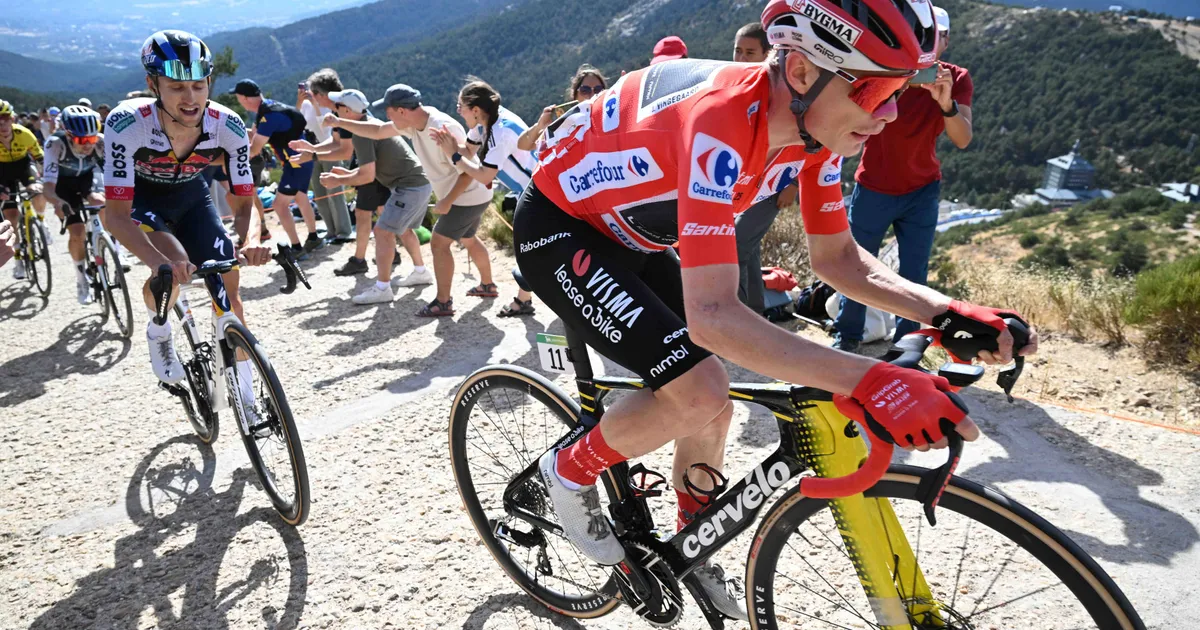The Vuelta a España turned into a duel between Jonas Vingegaard and João Almeida, but it didn’t quite become an all-out battle to the bitter end. While Vingegaard struggled with his health in the second week, Almeida confessed after stage 20 on the Bola del Mundo that he had been under the weather in the third week. Nevertheless, they finished 1st and 2nd in the GC, so how sick were they really?Analysts discussed the question in various podcasts and broadcasts, because it is possible to finish on the podium in a Grand Tour when you are truly sick? “That’s always after-the-fact talk. Vingegaard is the deserved winner, there’s no question about that,” said José De Cauwer briefly and firmly in the final analysis on Sporza.“I really believe that you feel sick. After ten or fourteen days in the heat, constant cooling, and all that ice, you get a sore throat, a stuffy nose, and a cough,“ analyzed Johan Bruyneel on The Move. ”I’m sure half the peloton is sick in the final part of a Grand Tour. When you’re sick, you’re not 100% and then you have to be lucky that the rest are also sick. ‘
Continue reading below the photo

Almeida and Vingegaard at the Bola del Mundo
Zonneveld prefers not to talk about sickness in the case of Vingegaard and AlmeidaThijs Zonneveld prefers not to talk about sickness in the podcast In De Waaier. According to him, the physical complaints of Vingegaard and Almeida are mainly the result of the race. “I think it’s true, and that Vingegaard has had enough,” he emphasized. “I believe it, but let’s call it feeling unwell, because if you’re sick, you’re not going to finish in the top five in the Vuelta mountain stages.”
Zonneveld quoted Tom Dumoulin, who once said about his Vuelta in 2015 that he also experienced symptoms of illness in the final weekend. “In the last weekend, he became sickly and snotty. Sore throat, cold sore, that kind of thing… He said that’s not bad luck, but that your body just can’t handle what you’re asking of it. You’re just not quite as good.‘
Continue reading below the photo

Vingegaard wins the Vuelta, even with a cough in the second week
Tour de France weighed heavily on Vingegaard and Almeida
“Sometimes you can be unlucky with a bacteria or a virus, and you can quickly catch something if you’re sitting behind the wrong person on the bus,” Zonneveld continued. “And we saw that Vingegaard and Almeida really did have a dip in their performance. They were overtaken on Morredero by Hindley, Pidcock, and Pellizzari. What if Almeida hadn’t underperformed in the last week?”
You could ask the same question about Vingegaard, and Zonneveld has an explanation for the many coughs in the Vuelta. “Everyone who rode the Tour really took a beating, more so than in other years. The Tour was physically and mentally tougher, partly because of that first week and a half with all those hill stages, where everyone had to be on their toes. It was a maximum fight every day.”
Continue reading below the photo

Pogacar and Vingegaard in the Tour de France
Vingegaard and Pogacar show their human side
“Even the big guys were pushing themselves to the max every day,” Zonneveld observed. “They attacked each other every day. On the Col de la Loze, everyone was exhausted. If you then have to ride the Vuelta, that’s pretty intense. In the end, Vingegaard won three stages and the Vuelta, so hats off to him. But this wasn’t the Vingegaard who won this Vuelta so masterfully.”
Zonneveld called that ‘human’, in a world where Vingegaard, Tadej Pogacar, and all the others are often dismissed as ‘aliens’. “Pogacar said after the Tour that he wasn’t going to ride the Vuelta because he was completely exhausted and didn’t feel like it. That was also human, because they are pushing each other so hard that they are reaching their own limits.”

